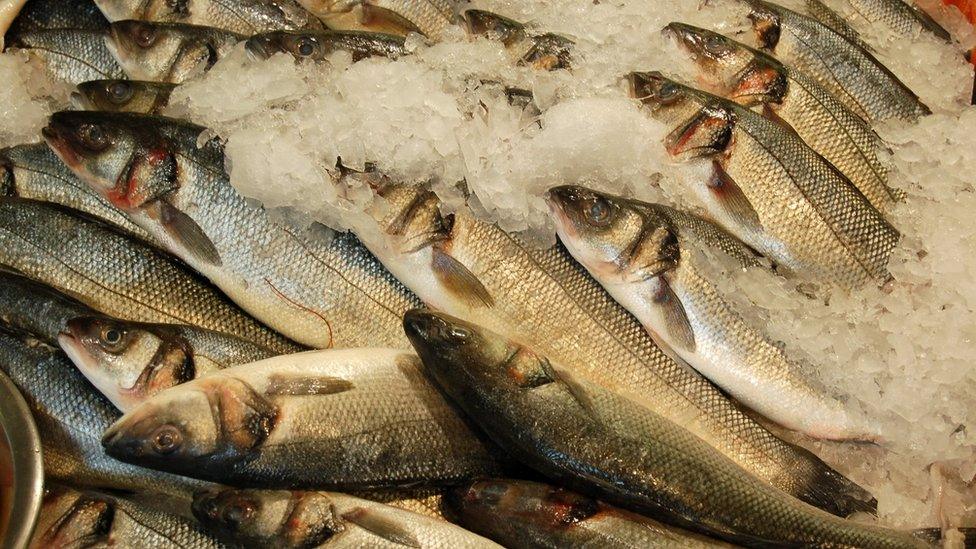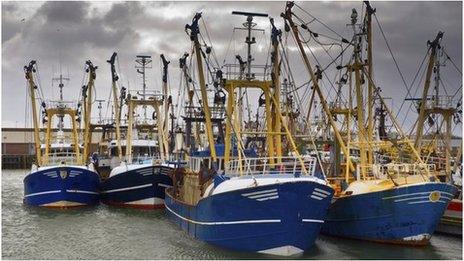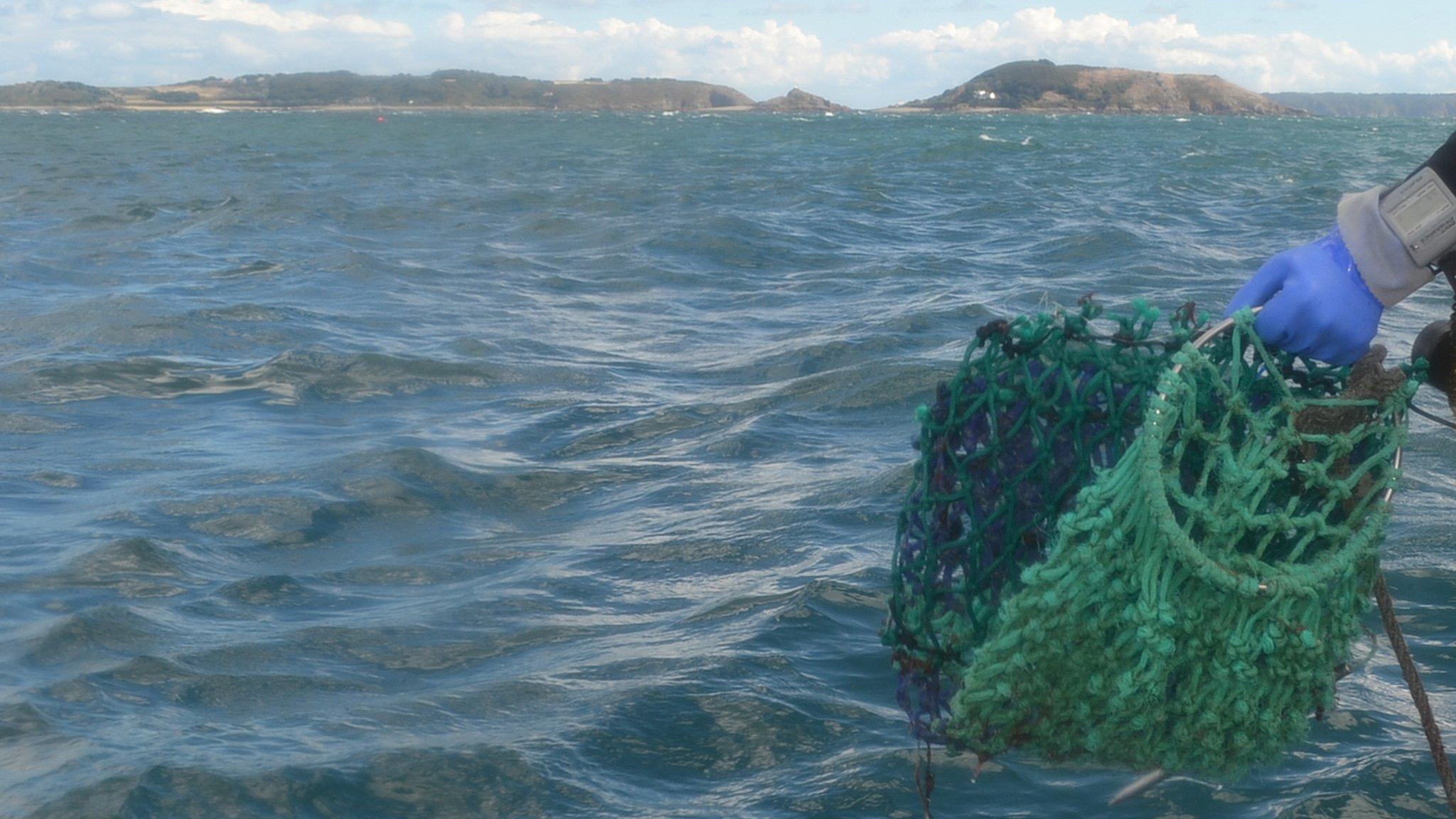New EU rule 'could damage Welsh angling industry'
- Published

Anglers and conservationists claim EU rules to protect bass are failing to conserve stocks and are damaging the Welsh angling industry.
Overfishing in seas has seen the number of bass in Welsh waters decline dramatically.
A six-month ban introduced by the EU in January means anglers have to throw back any bass they catch.
But commercial boats are still allowed to catch 1,300kg of bass for four months of the ban.
In 2014, the International Council for the Exploration of the Sea (ICES) recommended an 80% reduction in the amount of bass caught.
The Marine Conservation Society (MCS) said they were "extremely concerned" about the future of UK bass, and stocks could collapse.
'Totally disgusted'
John O'Connor, chairman of the Welsh Federation of Sea Anglers, said: "They have made an exception for those who cause the most damage.
"But we take very few fish and have been ignored. I'm totally disgusted."
Mr O'Connor, whose organisation represents more than 60 clubs nationally, is also a member of the Welsh marine fisheries advisory group.
"It's very depressing," he added.
"The knock-on effect to the Welsh tourism industry is worth millions."
'Unfair restrictions'
The exemption applies to commercial boats that use fixed gillnet and hook and line fisheries, which were responsible for almost half of all UK catches in 2014.
An MCS spokesman said: "The new measures are unlikely to prevent further declines, and will in fact reduce the numbers of adult breeding sea bass by a further 8%.
"The fish stocks would have benefited more from a complete ban from January to June, as was proposed originally.
"The impact of the moratorium for sea anglers and tourism in Wales, whilst imposing unfair restrictions compared to those for other sectors, will not prevent anglers from fishing."
'Economic importance'
The Welsh government said it recognised the economic and social importance of the recreational sea angling sector in Wales, particularly for bass.
"Nevertheless, there is scientific evidence that calls into question the longer-term viability of the sea bass stock in Northern Europe," a spokesman said.
"The decision in the European Union December Fisheries Council was part of a complex package of decisions, but took account of that evidence.
"We have been working with the recreational and commercial sectors in Wales to develop Welsh level measures to protect the stock and to allow viable and sustainable fisheries for both and will announce progress on that in the coming months."
The main spawning period for sea bass in British coastal and offshore waters is March to mid-June, but mostly in April.
- Published30 August 2014

- Published18 November 2013
